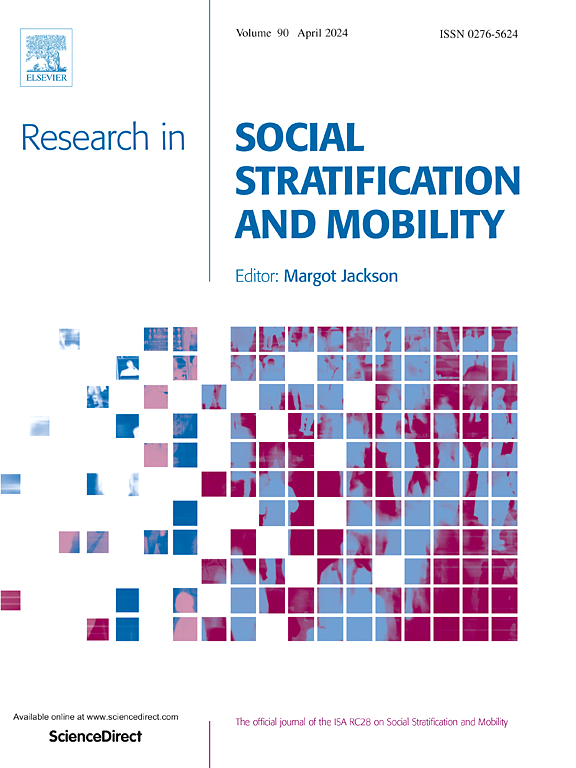年长工人培训的管理决策:工人与管理者特征相互作用的小研究
IF 2
1区 社会学
Q1 SOCIOLOGY
引用次数: 0
摘要
培训可以支持老年工人工作更长时间。然而,他们的培训参与度很低,而且分配不均,这可能加剧了年长员工之间的不平等。我们研究管理者是为了理解这种不平等,因为他们是决定谁接受培训的关键角色。我们根据就业能力、年龄和性别,根据国家情况,研究哪些工人被选中。我们在9个欧洲国家的482名管理者中进行了小插图实验。经理们给假设的员工打了“可培训性分数”,表明这些员工被选中接受培训的可能性有多大。我们分析是什么驱使他们做出(倾向的)决定。结果显示,管理者更喜欢培训那些已经更有就业能力的员工,这加剧了年长员工之间存在的不平等。此外,“年长”员工的可培训性得分较低,特别是在平均退休年龄较低的国家。没有证据支持“性别年龄歧视”的说法:男性和女性因年龄而受到同等的惩罚。本文章由计算机程序翻译,如有差异,请以英文原文为准。
Managerial decisions on older workers’ training: A vignette study on the interplay of worker and manager characteristics
Training could support older workers in working longer. However, their training participation is low and unequally divided, possibly reinforcing inequalities among older employees. We study managers to understand this inequality as they are key actors in deciding who receives training. We study which workers are selected, based on their employability, age and sex, depending on the country context. We use a vignette experiment among 482 managers across nine European countries. Managers gave ‘trainability scores’ to hypothetical employees indicating how likely these employees are to be selected for training. We analyse what drives their (inclined) decisions.
Results
show that managers prefer training employees who are already more employable, amplifying existing inequalities among older workers. Also, ‘older older’ employees receive lower trainability scores, particularly in countries with low average retirement ages. There was no support for the ‘gendered ageism’ argument: men and women were equally penalised for their age.
求助全文
通过发布文献求助,成功后即可免费获取论文全文。
去求助
来源期刊
CiteScore
7.80
自引率
6.00%
发文量
46
期刊介绍:
The study of social inequality is and has been one of the central preoccupations of social scientists. Research in Social Stratification and Mobility is dedicated to publishing the highest, most innovative research on issues of social inequality from a broad diversity of theoretical and methodological perspectives. The journal is also dedicated to cutting edge summaries of prior research and fruitful exchanges that will stimulate future research on issues of social inequality. The study of social inequality is and has been one of the central preoccupations of social scientists.

 求助内容:
求助内容: 应助结果提醒方式:
应助结果提醒方式:


